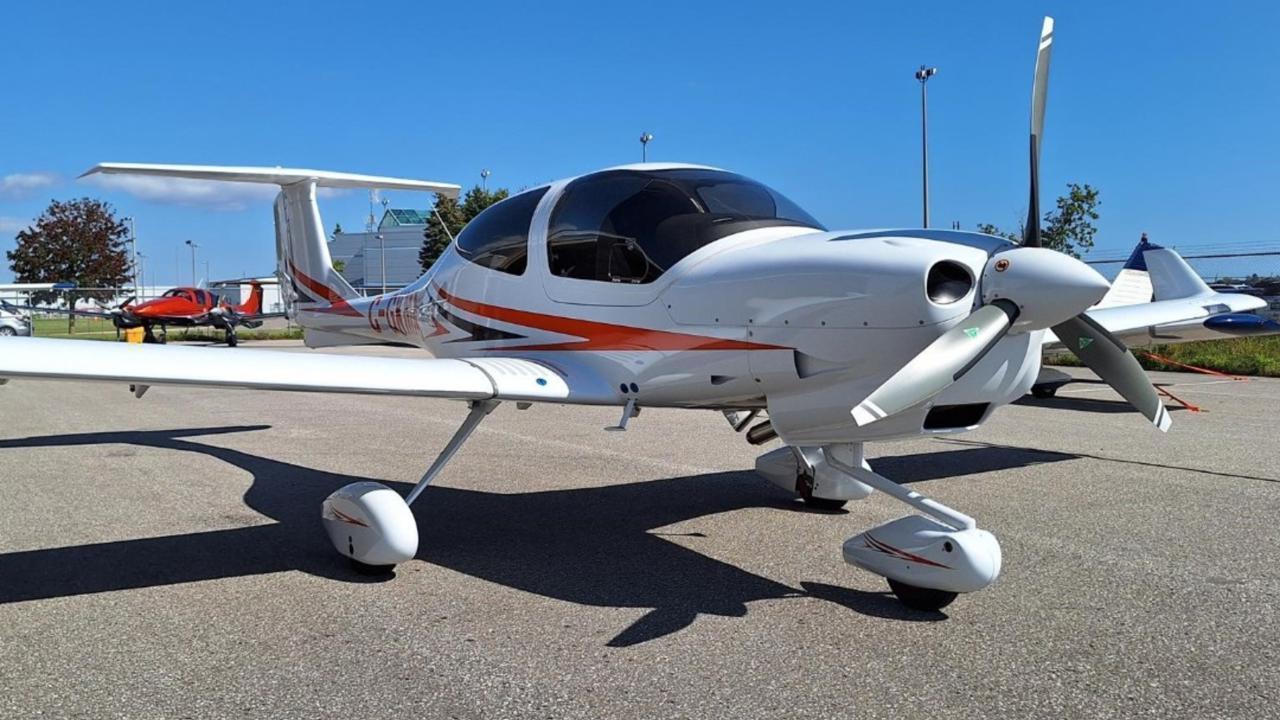
Post by : Amit
Photo : Instagram / controllerpub
A Prestigious Academy Under Scrutiny
The Indira Gandhi Institute of Aeronautics (IGRUA), often hailed as the cradle of India’s civil aviation pilots, is under the scanner after the government confirmed that four of its trainer aircraft were lost in accidents over the past eight years. The Ministry of Civil Aviation revealed these figures in a recent disclosure to Parliament, sparking debate about flight training safety, aircraft maintenance, and oversight in the country’s most respected flying school.
A Record of Losses
The reported four aircraft losses are spread across different incidents, each involving trainer planes that form the backbone of student pilot learning. While no large-scale fatalities were reported, the recurring mishaps raise serious questions about operational safety and the robustness of IGRUA’s accident-prevention measures. These accidents represent not just financial setbacks but also potential dents in the institution’s reputation, especially given its role as the country’s leading source of commercial pilots.
The Role of IGRUA in Indian Aviation
Established in 1985 and located in Amethi, Uttar Pradesh, IGRUA has long been the flagship training ground for aspiring pilots. Its alumni are spread across Indian and international airlines, holding senior positions in the cockpit and beyond. With India poised to become the world’s third-largest aviation market, IGRUA’s role in shaping safe and competent pilots cannot be overstated. The news of repeated aircraft losses, therefore, resonates far beyond the academy’s walls.
Safety Oversight and Government Response
The Ministry of Civil Aviation has assured that all accidents were investigated as per Directorate General of Civil Aviation (DGCA) protocols. Findings from these inquiries reportedly led to safety advisories and corrective measures. However, aviation experts point out that the recurrence of accidents suggests deeper systemic issues—ranging from the condition of trainer aircraft fleets to the quality of supervision during student solo flights.
Fleet Maintenance Challenges
A significant challenge for IGRUA, and many flight schools globally, is the cost-intensive upkeep of trainer aircraft. With hundreds of sorties flown annually by cadets, wear and tear on planes such as the DA40 and Zlin aircraft is inevitable. Maintaining these machines to the highest safety standards requires sustained funding, skilled engineers, and rigorous checks. Reports suggest that while IGRUA has a maintenance system in place, repeated accidents indicate that preventive oversight might need strengthening.
Human Factors in Training
Accidents in training environments often involve human factors—students flying solo for the first time, decision-making under stress, or instructors balancing teaching and intervention. Aviation psychologists argue that while aircraft losses are regrettable, they also highlight the inherent risks of flight training. Still, multiple accidents over a relatively short timeframe raise concerns about whether best practices in training supervision are consistently followed.
Industry Comparisons
Globally, pilot training academies in the US, Europe, and the Middle East also report occasional aircraft losses during training. However, leading institutes usually boast robust systems that reduce such occurrences to rare outliers. The fact that IGRUA, with its stature and government backing, has recorded four losses in eight years, is prompting industry comparisons and calls for adopting international safety benchmarks more rigorously.
Implications for Pilot Training in India
India is facing a historic shortage of trained pilots, with airlines placing record aircraft orders. The country will require thousands of new pilots over the next decade, putting immense pressure on training academies like IGRUA to deliver at scale. Frequent training accidents could impact recruitment confidence, drive up insurance costs, and delay the output of certified pilots. Industry insiders suggest that the government might need to intervene with dedicated funding for safety upgrades and modern training equipment.
Calls for Modernization
Several experts argue that the accidents underscore the urgency of modernizing India’s pilot training ecosystem. Suggestions include expanding simulator-based training, phasing out older trainer aircraft, and introducing AI-driven analytics for flight monitoring. The use of advanced flight simulators, already common in global academies, can significantly reduce risks during early training phases, while still preparing cadets for real-world flying challenges.
The Road Ahead
While the government’s admission about IGRUA’s accidents has stirred concern, it also provides an opportunity to push for systemic reforms. Ensuring that India’s premier flight school aligns with global safety standards is critical not only for its students but also for the larger aviation sector that depends on its graduates. As India’s skies get busier and airlines push for expansion, the resilience and credibility of its pilot training institutions will directly shape the industry’s future safety record.
IGRUA accidents, pilot training safety, aviation oversight










Advances in Aerospace Technology and Commercial Aviation Recovery
Insights into breakthrough aerospace technologies and commercial aviation’s recovery amid 2025 chall

Defense Modernization and Strategic Spending Trends
Explore key trends in global defense modernization and strategic military spending shaping 2025 secu

Tens of Thousands Protest in Serbia on Anniversary of Deadly Roof Collapse
Tens of thousands in Novi Sad mark a year since a deadly station roof collapse that killed 16, prote

Canada PM Carney Apologizes to Trump Over Controversial Reagan Anti-Tariff Ad
Canadian PM Mark Carney apologized to President Trump over an Ontario anti-tariff ad quoting Reagan,

The ad that stirred a hornets nest, and made Canadian PM Carney say sorry to Trump
Canadian PM Mark Carney apologizes to US President Trump after a tariff-related ad causes diplomatic

Bengaluru-Mumbai Superfast Train Approved After 30-Year Wait
Railways approves new superfast train connecting Bengaluru and Mumbai, ending a 30-year demand, easi